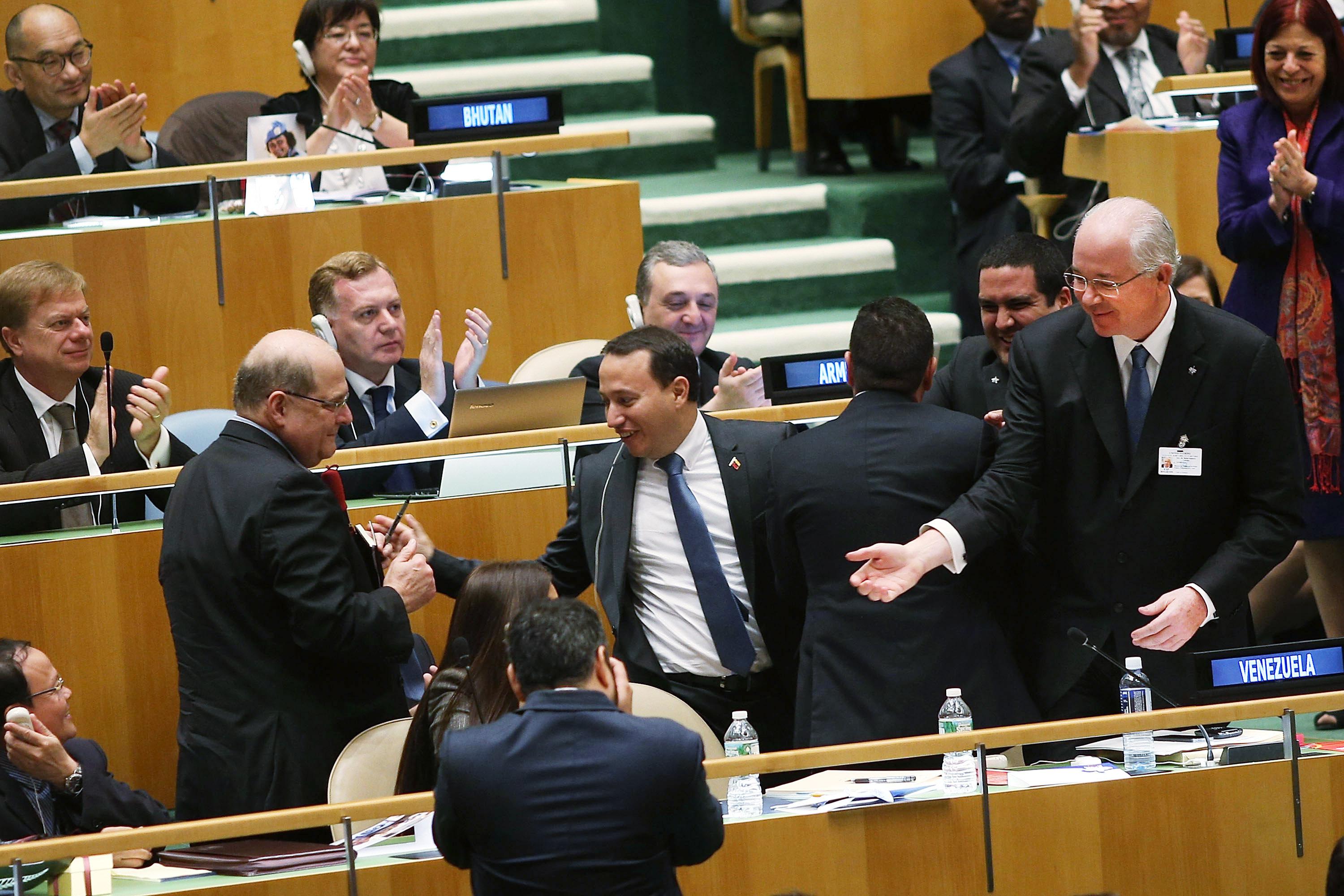Angola, Malaysia, New Zealand, Venezuela, and Spain, were elected as non-permanent members of the U.N. Security Council yesterday. Venezuela is likely to frequently join Russia and China—the so-called “sovereignty caucus” on the council—in opposing U.S. initiatives. The U.S. opposed Venezuela’s bid to join the council in 2006, but this time only registered its objections after the fact, with Amb. Samantha Power saying that the country’s “conduct at the UN has run counter to the spirit of the UN Charter.”
But the bigger story may be that Turkey, which had also put in a bid for membership, narrowly lost out on a spot to New Zealand and Spain in the “Western Europe and Others” group. This comes at a time when Turkey’s NATO allies are extremely frustrated with President Recep Tayyip Erdogan’s government’s reluctance to participate more actively in the fight against ISIS militants across the border in Syria. (This week Turkish warplanes bombed camps of the Kurdish PKK movement in Turkey in the first major offensive since peace talks began two years ago. Given that Kurdish fighters have been on the frontlines against ISIS in both Syria and Iraq, Turkey could be seen as actively hampering the coalition.)
Turkey’s foreign minister said after the vote that “there may be some countries disturbed by our principled stance” and that “we could not abandon our principles for the sake of getting more votes.”
The vote was also a reminder of just how irrelevant the Security Council—and international law, generally—has seemed during the latest military intervention in the Middle East. While chaired by Obama, the Council did pass an anti-ISIS resolution in late September, but it doesn’t seem like going to the U.N., as the U.S. did during the 2011 intervention in Libya, for authorization for the strikes within Syria was every seriously considered.
Rather, the administration is relying on the vague and controversial notion that the use of force is authorized when a local actor is “unwilling or unable” to contain a growing security threat. The lack of interest in the topic here is in stark contrast to Britain, where the opposition Labour party has balked at supporting airstrikes in Syria without a U.N. resolution. (They did support strikes in Iraq.)
The reason why going to the Security Council on Syria airstrikes was never seriously considered may seem obvious: Permanent member Russia would never support it. But as Jennifer Trahan notes, it’s not actually entirely out of the question that Moscow might have come around.
The Russian government, perhaps Bashar al-Assad’s staunchest international ally, has objected to the U.S. bombing Syrian territory without the Syrian government’s permission. But Syria’s foreign minister says his government is actually “OK” with the strikes “as long as they are aiming at ISIS locations.”
It’s possible to imagine a scenario under which the U.S. would promise to limit its airstrikes to ISIS, rather than Syrian government targets—as it is actually doing in practice—and get the Russian government’s buy-in. (China already seems quietly on board.)
However, this would involve admitting that the U.S. and Assad governments are increasingly becoming—if not allies—at least partners against a common enemy, something the administration maintains is not the case. It would also allow Russia to gloat that it knew all along that Assad wasn’t the real danger in the region.
Given that option, it’s not much surprise that Obama seems to be moving closer to his predecessor’s view on the necessity of working within the international system.
